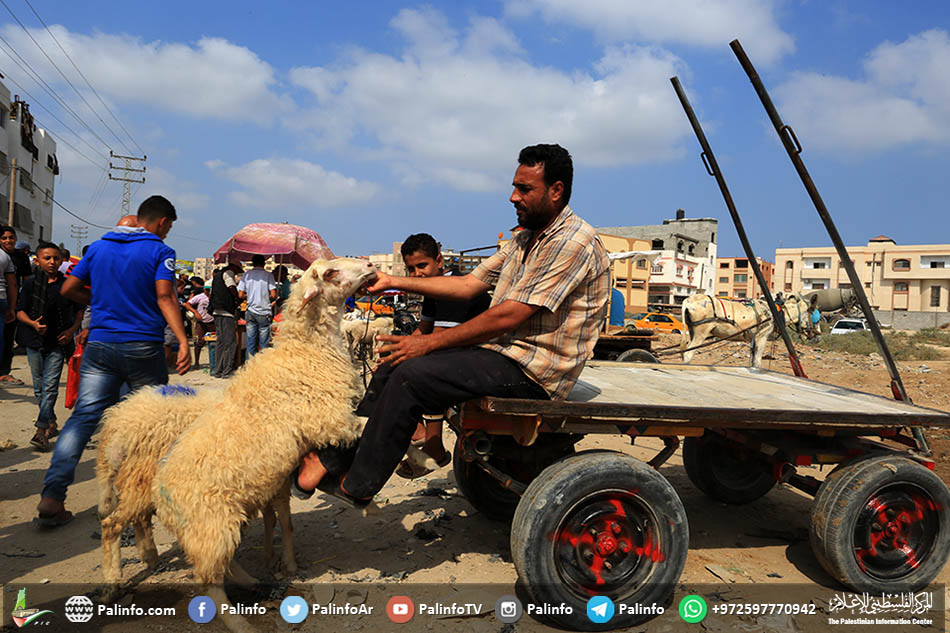For the first time ever sacrificial livestock markets in the Gaza Strip are experiencing very low demands despite the high supply due to the tightened blockade and the latest punitive measures launched lately by the Palestinian Authority on the enclave.
Gaza’s Ministry of National Economy in agreement with the Ministry of Agriculture announced in July the prices of sacrificial cattle.
Nearly 25000 imported and local calves and cows are available in Gaza markets. The Ministry of Agriculture estimated that the Gaza Strip will need between 12000 to 15000 of livestock during Eid al-Adha.
Cash and installment
Since the early morning the sheep dealer Ahmad Abu Musaed has been roaming the sheep market in the central Gaza Strip selling nothing.
Abu Musaed said as sweat was beating down his neck “There is no money. The sheep that is worth 450 Jordanian dinars is sold now at 220.This is the first time I find myself forced to sell in installments.”
Marwan Abu Amer a famous sheep dealer from al-Qarara town in the southern Gaza Strip barely managed to sell two sheep for 270 Jordanian dinars although normally they could be sold for 450 dinars but he chose not to return to his home empty-handed.
At the end of the market day the shocked merchants started to move their livestock to the transport vehicles in preparation for returning them to the farms.
“The market has never been like this” said Mohammed Qweider a cattle merchant from al-Nusairat refugee camp in the central Gaza Strip adding “I only sold a small lamb.”
Low purchasing power
Moving from one merchant to another ‘Alaa Basala said “I came here to have a look at the prices. I’m used to buying a sheep every year.” Basala affirmed that all he has does not exceed 200 Jordanian dinars and that he has not decided yet.
Khalid Mushtaha however was able to buy a sheep but the power crisis was a major concern for him as it has reduced Gazans’ abilities to store meat since refrigerators are not working.
Drugs and tools
Mohammed Thabet a 59-year-old veterinarian was disgruntled at what he called “outsiders” who treat the livestock with drugs at false prices. He said that he was able to detect and treat an infection that first appeared among the imported cattle.
Thabet said “Every year I move my mobile clinic to the sacrificial livestock markets to provide customers and merchants with medicines and vaccines.”
He continued “Customers usually come to me for advice or treatment but today the purchasing power is almost zero and merchants cannot sell anything.”
Merchant Atia Harb who moves between Gaza’s various markets to sell livestock-related tools said complaining of the low demand “I have excellent Italian and Portuguese knives but customers tend to buy the cut-priced ones.”















